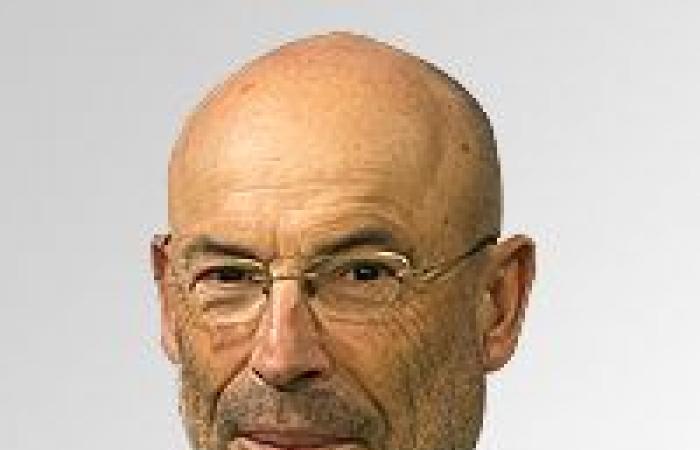For those who don’t know, the Cheleiros stream is generally located south of the town of Mafra and its waters run deep along its steep banks. It was there that, in my days as a lieutenant at the extinct Infantry Practical School (EPI), his infantry battalion held back the Warsaw Pact forces who, in the meantime, had crossed the whole of western Europe and defeated the NATO forces wherever they passed. . It would be the valiant infant descendants of the Holy Constable who would put an end to the matter. But we were all aware that it was a fictitious situation to frame a real fires exercise.
The European leaders of those times, on both sides of the “iron curtain”, relied on deterrence, because they knew that a hot war between the two blocs would lead to extermination. There was then talk of Mutual Assured Destruction (MAD, Mutual Assured Destruction), a concept that seems to have been forgotten by the current leaders of the Old Continent. At least, this is what we can deduce from the speech of this new generation of leaders who did not experience the scourge of war.
It was thanks to deterrence and MAD that the two arch-enemies coexisted peacefully for more than four decades. The great powers – USA and USSR – chose to confront each other in other latitudes, in other theaters of operations, through proxy wars, far from their territories. The Afghans, the Vietnamese and other peoples of Africa will certainly know what I’m talking about.
Recently, the possibility, or rather, the certainty, that Ukraine would militarily defeat Russia, a nuclear power, emerged in the minds of many, through naivety or even ignorance. of its promoters, without them having to place troops on the ground, with military units established.
After two years of war, the unrealism of this fantasy is increasingly obvious. I don’t know what else will have to happen for them to realize that continuing to arm Kiev will not only not have significant strategic consequences, but will only serve to prolong the destruction of Ukrainian society and the suffering of a people who do not seem to want to continue fighting, and who political power itself is afraid to mobilize by force.
Blindness and ideological prejudice have never been good advisors for those who have to decide. When they embarked on this adventure, the Europeans must have been aware of the American history of strategic miscalculations.
Clumsy strategic assessment
During the Iraq war, France and Germany, the pillars of the European project, distanced themselves from this adventure. Now they did not have that discernment and chose to join the chorus of supporters. It will not be necessary to remember what happened in Vietnam, Afghanistan, Iraq and Libya, among many other cases. The belief in Russia’s defeat at the expense of the Ukrainians is yet another case of clumsy strategic assessment.
The hope of defeating Russia has been frustrated, a feeling that began to emerge with Kiev’s military failure in the autumn of 2023, and the consequent increase in the Kremlin’s military capacity and successes, has been witnessed in the West and, in particular, , in Europe to a certain disorientation, to the difficulty in accepting that they bet on the “wrong horse”, in recognizing that the choices made were wrong and that it is time to change paths.
The hypothesis of a Russian victory in Ukraine – whatever that may be – considered two years ago as nonsense in the areopagus of commentary, gained traction in the media space.
It seems, after all, that the ill-prepared Russian forces managed to overcome the problems of the lack of grenades and missiles and, from one moment to the next, like a reborn phoenix, they became capable of militarily challenging a political community with more than 400 million inhabitants. , which is economically and technologically superior. The fact that this approach is ridiculous has not prevented it from being repeated over and over again, seeking to convince public opinion of the verisimilitude of this absurdity.
President Macron will perhaps be the maximum exponent of European dismay at the likely strategic humiliation that Europe could suffer. The attempt to lead the response to this collective affront prompted him to form a coalition outside the NATO framework (with Poland and the “powerful” Baltic countries) to intervene with troops in Ukraine, knowing in advance that the US will not send forces to the ground and probably forgetting its military weaknesses.
In 2011, if it weren’t for American aid (missiles, aerial refueling, intelligence, etc.) and the attack on Libya would have been a disaster. Furthermore, Paris has already delivered 40% of its artillery to Ukraine and does not enjoy popular support for such a large undertaking.
Russia will not take the initiative to invade the West. There are many reasons that explain this behavior. The first is the inability, in the case of being an attacking force, to militarily defeat NATO’s European forces, even if they do not have North American support.
The Kremlin is aware of this reality. It is too obvious to be in doubt. Consider Russia’s difficulty in defeating Ukrainian forces, supported by Western forces. The Kremlin knows, for example, its vulnerabilities in terms of ISR (Intelligence, Surveillance, Reconnaissance), very evident at the beginning of the war, and still evident two years later.
Russia only has 15 AWACS to cover its entire immense territory, and has limitations in permanent surveillance of the Theater of Operations and in long-range detection. The difficulty in maintaining a 24/7 presence, as NATO has, in the western part of the Black Sea is evident. Russia does not have the resources to wage war peer-to-peer with NATO beyond Ukrainian territory. Anyone who claims otherwise is ignorant, or an impostor.
All great powers were tempted to seize Russia, or portions of its territory, to access its immense natural resources. Not going back to the invasions prior to the 20th century. XVI, in the century. In the 17th century, Russia was invaded by Poland in the 17th century. XVIII by the Swedes and, in the century. XIX, by Napoleon. Still in the century. XIX, both France and the British fought Russia in the Crimean War. There is no memory of Russia reciprocating these actions by instigating, for example, rebellions in Corsica.
In the century. XX, Russia was invaded by the Japanese at two different times and, during the civil war (1917-1920), by an international coalition, in which an American contingent of 17 thousand soldiers even participated.
The White House project is not new
The American project of removing the regime in Moscow and replacing it with someone closer to its interests, submissive to the White House, as Victoria Nuland said, a partner as we wanted, “a Westernized and European partner”, is neither new nor original.
The French and British had the same idea at the end of the First World War, for reasons very similar to those of the Americans. They also aimed to overthrow the newly installed regime in Moscow to have “commercial and political advantage”. According to the agreement concluded at that time, it was up to France to “exert influence”, euphemistically speaking, in the areas of Bessarabia and Crimea.
According to “Le Monde”, Macron shared with his inner circle the intention of sending French troops to Odessa, probably to celebrate the 105 years in which Odessa was a French province for one hundred days. Having failed the British project to build a naval military base in Odessa, France is now seeking to take the lead in implementing this project.
To these dreams and these ambitions, all finished in the same way, we will have to add the Hitlerian dream of the 1000-year-old empire, whose brutal military operation left marks that are still clearly visible in Russian society today.
Only on two occasions in history have Russian/Soviet forces advanced west of the Oder and Vistula rivers, following invasions by the Napoleonic and Hitler armies, in successful exploitation operations, in response to the attack of which they were victims. What would motivate the Kremlin to do so now?
Historically, Russia has strategically balanced towards Asia rather than Europe. The absence of a plausible reason to explain a strategic change leads us to conclude that the inevitability of a Russian attack on Europe is a fallacy, designed to distract attention from the strategic defeat that looms on the horizon.
Unlike the USA and other powers, which invaded or provoked regime changes in places not contiguous with their territories, Russia acted militarily in two places – Georgia and Ukraine – that are contiguous to it and in which there had previously been operations to change the regime. regime provoked by Washington. Interestingly, these were the two countries invited to join the Alliance at the Bucharest Summit in 2008. It was important to relate the events and draw lessons from them.
It is time to recover formulas for peaceful coexistence
European rearmament and the strengthening of its military preparation (military Schengen, military transport, construction of railways and motorways, etc.) are not controversial if it is subordinated to a logic of deterrence. It is, in fact, necessary, as long as there is no other end in view. However, it is still a travesty that figures like Ursula von der Leyen, who actively collaborated in the weakening of the German armed forces as defense minister (2009-2014), now lead the chorus of warmongers. She makes you think.
Before escalating the conflict to unsustainable levels, high-ranking European dignitaries must consider in their decision-making process: that the US will not send troops to Ukraine, with Europeans having to rely only on themselves; whereas the MAD concept remains valid and Russia has an advantage in strategic nuclear weapons; that Russia will not attack the West; and that the prolongation of the war will not cause a strategic change in the situation, but rather worsen the situation in Ukraine.
It is unacceptable that the “Strategic Communicators” chose the invasion of Europe by Russia as a topic of appeal, once the Ukrainian problem had been resolved. It creates anxiety among the population, making them believe that war is inevitable, despite there being no technical evidence that could suggest this. It is an indoctrination action based on false premises, promoted by the most warmongering sectors, to make populations receptive to accepting an unwanted military confrontation with Russia.
It would therefore be wise for Europeans not to increase the decibels of rhetoric, and to realize that it is time to reconcile and recover formulas for peaceful coexistence, already successfully tested in the past.
After all, the likelihood of the Russians ever crossing the Oder or Vistula to the West again appears nil. The people of Mafra and Europeans will be able to sleep peacefully. The Russians will not reach Ribeira de Cheleiros.






